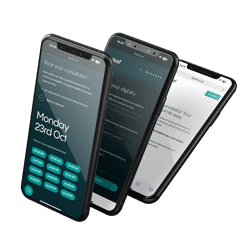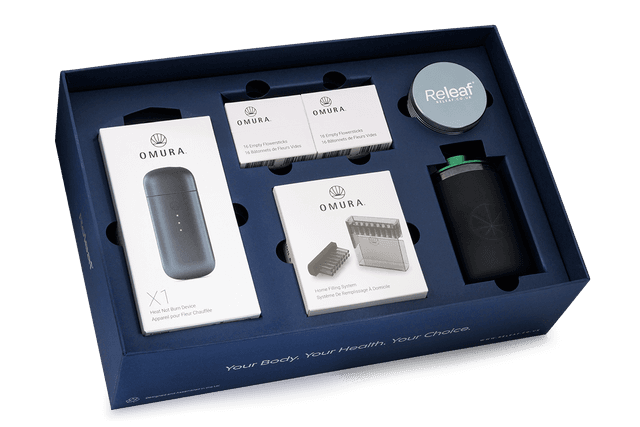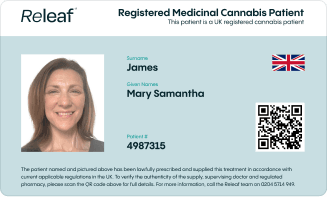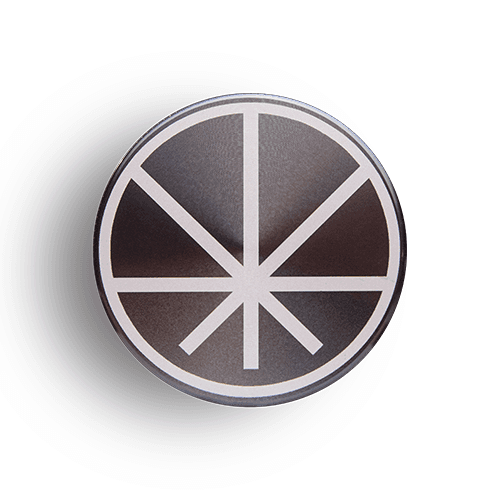According to Bupa, between one and two in 10 people in the UK are thought to have IBS. The most common age range for the condition to develop is from the late teens up to around 30 years old, but it really can strike sufferers of any age.
So what exactly is IBS, and can CBD really be an effective treatment? Here, we will explain exactly what IBS is, its related symptoms, and the scientific research showing that CBD may help ease the symptoms of IBS.
What is IBS?
IBS is a chronic condition that affects the digestive system and is pretty common in the UK and worldwide. The condition causes discomfort, heavy cramping, and often pain in the stomach. It plays havoc with sufferers' bowel movements.
Currently, there is no cure for IBS, with the only treatments available aimed at reducing the impact of the symptoms to a manageable level. The biggest recommendations for reducing the impact of the symptoms remain making lifestyle changes with regard to dietary and exercise habits, which are always a good idea even if a medical treatment such as CBD works for you.
While most IBS patients battle the condition for years, if not for life, it has been known to go away on its own in some cases. The symptoms are rarely present all the time, and more often come in debilitating bouts. The severity of IBS varies from person to person, with some sufferers having their daily life heavily impacted by the condition.
Now, let’s look at the potential for CBD to be used for IBS symptoms like diarrhoea.
Can CBD potentially reduce IBS symptoms?
Research has been conducted into the effects of medical cannabis and its cannabinoids like CBD for years, with one study from 2009 discovering its anti-inflammatory properties.
Interestingly, CBD was previously thought to have the potential to increase diarrhoea. However, more recent studies such as this one from the Semmelweis University in Hungary and this study from the Clinical Enteric Neuroscience Translational and Epidemiological Research (CENTER) in the United States have discovered that CBD may actually decrease gut motility (or movement within the digestive system).
These more recent findings suggest that CBD could be a potentially useful treatment for diarrhoea caused by IBS. Its potential is all down to how CBD interacts with our digestive systems, so let’s take a closer look at that process.
How CBD interacts with the digestive system
As CBD is a cannabinoid, it interacts directly with the endocannabinoid system inside our bodies. Endocannabinoids are cannabinoids naturally produced by humans, with the system consisting of a complex of cannabinoid receptors, chemical signals (endocannabinoids), and molecules known as endogenous ligands.
The endocannabinoid system helps to regulate moods and emotions and has been shown to potentially have a significant impact on our memories and appetite, as well as how we experience physical pain. Most importantly for IBS sufferers seeking out a treatment option for diarrhoea, the endocannabinoid system helps to modulate gastrointestinal motility.
The endogenous ligands bind with the cannabinoid receptors through chemical signals to activate them, which is how introducing CBD may be able to kickstart the endocannabinoid system into improving gut motility and, in turn, our bowel movements.
Choosing a CBD product
CBD as a treatment for IBS can be administered in a variety of ways according to the preference of each patient, and the recommendations from their prescribing physician. The different forms include oils or tinctures, tablets, dried CBD flower, edible gummies, and skin creams.
The different options all come with their own range of pros and cons, so it's important to always seek the guidance of a doctor that is experienced in prescribing medicinal cannabis products before beginning any new treatment.
The fastest-acting CBD treatment options include inhalation (through a vaporiser) and sublingual administration – administering the product under the tongue. Both offer almost immediate effects and high rates of CBD bio-availability.
There is a huge range of edible options available for oral ingestion, with the products simply swallowed directly. These ingestion methods see the CBD absorbed through the digestive tract, but the time it takes for the effects to be felt can range anywhere from 30 to 90 minutes. The first-pass digestive process also reduces the bioavailability of CBD, meaning that more is needed to achieve the desired effect.
Finally, there are topical creams and salves available which can be rubbed directly into the skin. As this is not an ingestion method, it will not pass through the digestive system and so may not help with symptoms such as diarrhoea caused by IBS, but it may help ease the cramping associated with the condition.
Each patient's preferred ingestion method may be determined by a variety of factors. Some will have an aversion to inhalation administration, while others may want the CBD product to act as quickly as possible. Anyone who enjoys gummies as a snack may simply prefer to stick to edibles when it comes to their CBD treatment.
CBD dosage guidelines
The amount of CBD in a CBD product is measured in milligrams (mg). It’s important to identify the correct dosage when using CBD to treat IBS symptoms like diarrhoea, as too high a dose can cause unpleasant side effects, as explained further below.
There are also multiple factors to consider when calculating a dose. The first is our body weight, as some medical treatments can be experienced differently by people of significantly different sizes. While many medical treatments can be standardised for people of all sizes, more research is needed into the dosage of CBD to determine if the same applies.
Another significant factor that impacts what CBD dosage to take is your individual tolerance to CBD and other cannabinoids. Different people react differently as our natural tolerances range from high to low, so it’s always better to be safe and start with a low dosage and build up from there.
Ultimately, these factors mean we should all be starting with a fairly low dose to see how it goes before slowly raising the dosage in increments until it becomes effective. By slowly raising the dose in increments, we can safely approach the ideal dose of CBD to treat IBS symptoms like diarrhoea while minimising the risk of experiencing side effects.
Again, all of this should be discussed with your prescribing doctor before treatment begins. They will be able to best guide you in terms of CBD dosage.
Potential side effects of CBD
Too high a dose of CBD can result in side effects that are considered ‘non-serious’ although they can be unpleasant even. These potential side effects include:
- dizziness
- drowsiness
- nausea
- decreased appetite
The best method to avoid such side effects is to dose correctly, starting low and building it up in increments until it becomes effective for your symptoms.
CBD may also negatively interact with certain pharmaceuticals.
Conclusion
CBD can be a highly effective treatment option for IBS-related diarrhoea, but it’s important to take the time to select the right CBD product and dosage according to your needs. It’s always better to start low and build up in increments until you find an effective dose.
If you are considering using CBD products as a treatment option for IBS, we advise seeking the assistance of a medical professional who is experienced in prescribing medicinal cannabis products for IBS.
By following these guidelines, you can ensure that you are able to safely and effectively make use of CBD as part of your treatment plan. It’s also critical to remember that while CBD may be an effective treatment option for IBS, it is not a cure. By implementing it into your treatment regime as a complementary therapy, you may be able to manage your IBS symptoms in a more successful and sustainable way.
Releaf understands the importance of medical cannabis in treating various medical conditions. With our tailored monthly packages, specialist consultations for medical cannabis, and a unique medical cannabis card for protection, you can access the treatment you need without worrying about the stigma.





